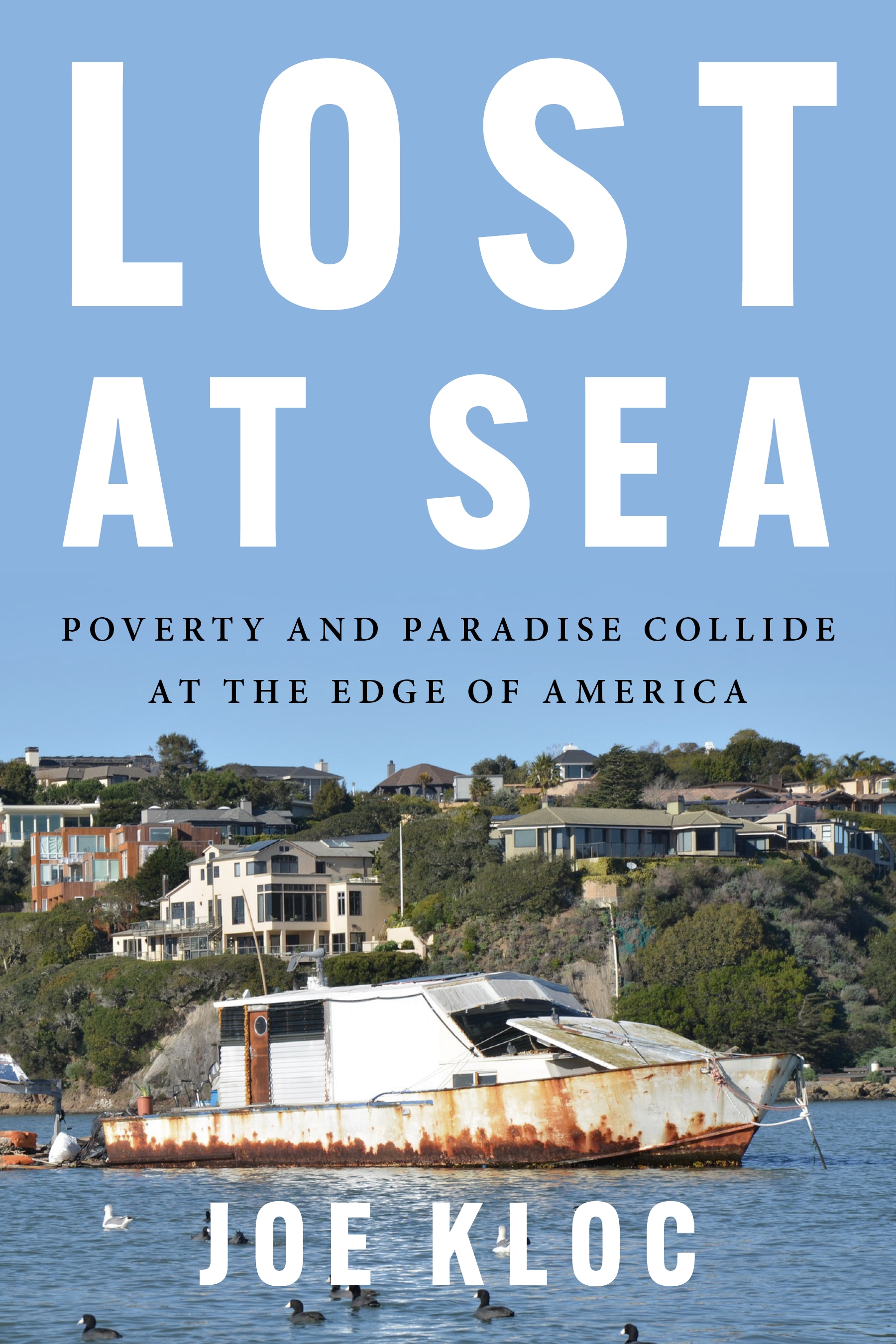Lost at Sea: Poverty and Paradise Collide at the Edge of America
Joe Kloc
Your rating:
Lost at Sea: Poverty and Paradise Collide at the Edge of America
Joe Kloc
A deeply personal nine-year account of the lives of the “anchor-outs”—an unhoused community living off the California coast on abandoned boats—that explores the struggles and resilience of those surviving on the fringes of society In the wake of the financial crisis, the number of anchor-outs living in Richardson Bay more than doubled as their long-simmering feud with the wealthy residents of Marin County—one of the richest counties in the country—finally boiled over. Many of the shoreline’s well-heeled yacht club members and mansion owners blamed their unhoused neighbors for rising crime on the waterfront. Meanwhile, local politicians accused them of destroying the Bay Area’s marine ecosystem and demanded their eviction. When the pandemic broke out, a slew of city and regional authorities heeded the call: they seized and crushed the anchor-outs’ boats, arresting dissenters as they dismantled one of the nation’s oldest unhoused communities. Kloc’s near-decade-long firsthand account of the joys, hardships, and eventual demise of the anchor-outs is in many ways the story of being poor in America. Examining the profit-driven policies that exacerbate the contemporary housing crisis, Lost at Sea weaves together tales of comradery and survival on the anchorage with the rich history of the region, from the creation of unspeakable wealth during the San Francisco Gold Rush era to the aftermath of the devastating earthquake and fire of 1906, when the first unhoused people dropped their anchors in Marin County. Along the way, Kloc discovers the quiet beauty of the world the anchor-outs built: how they’ve learned to care for each other, band together to fend off real estate developers and NIMBY neighbors, and fight for a way of life that is entirely unrecognizable to those on shore. Lost at Sea explores the often overlooked world of poverty and homelessness that exists in even the wealthiest enclaves of America, where people who have fallen on hard times struggle to rebuild their lives among those who would rather just wish them away.
No posts yet
Kick off the convo with a theory, question, musing, or update
Your rating:
Interesting Expose Of A Particular Community, Suffers From Problems Typical Of Its Form. As an almost anthropological examination of a particular culture that arose over decades in a very specific region of California - the roughly six square mile region known as Richardson's Bay, an offshoot of San Francisco Bay - this text is a pirate's treasure trove. Specifically, as it examines the "unhoused" people who have claimed homes among the derelict and otherwise vessels floating in the bay, the so-called "anchor-outs", it truly does a phenomenal job detailing the history of how the culture arose, a lot of the features of the specific culture, and even a lot of both the key historical figures of it and at least some of its living practitioners. As a *journalistic* piece... it may fly in today's "lived experience" version of "journalism", where objectivity and distance from subject are defenestrated in favor of being "up close" and "real"... but it still would have been enhanced by being a more old school journalistic type text, at least to my mind. Instead what we get here is almost an action, thriller, and memoir mashup wherein the author inserts his own views into the text, but the story itself becomes one of a community's fight for its right to survive and the dastardly developers and government officials seeking to eradicate it from history once and for all. Which for a narrative, works well. For what is supposed to be a nonfiction work... maybe doesn't work as well. The star deduction comes in from the dearth of bibliography, which is likely due to not much written work existing about this particular group or its history, but still, there is quite a bit here that *could* have been documented more thoroughly, if even detailing newspaper or other media reports about various events over the years. Very much recommended.
